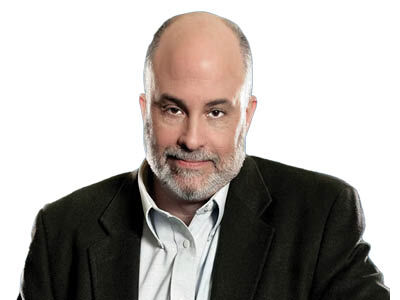Iran's president blasts US, Israeli attacks for dealing 'grievous blow' to peace as sanctions loom
News > National News

Audio By Carbonatix
8:36 AM on Wednesday, September 24
By FARNOUSH AMIRI and JON GAMBRELL
UNITED NATIONS (AP) — Addressing the world's leaders, Iranian President Masoud Pezeshkian on Wednesday blamed the United States and Israeli attacks for “dealing a grievous blow” to peace negotiations as Tehran braces for the reinstatement of sanctions in the next week, barring a last-minute diplomatic breakthrough. Hours before his speech, Iran's rial currency fell to a new all-time low.
Pezeshkian's remarks before the U.N. General Assembly are the first in a global forum since the 12-day Israel-Iran war over the summer that saw the assassination of many of the Islamic Republic’s highest military and political leaders and broke down weeks of negotiations with the United States.
“Ladies and gentlemen, you all bore witness that this past June, my country was subjected to a savage aggression and flagrant contravention of the most elementary principles of international law,” said the president, who, within Iran’s political landscape, is considered a moderate politician.
Pezeshkian is in New York as Tehran seeks to engage in last-minute talks with European nations to stop the coming reimposition of U.N. sanctions on Iran over its nuclear program. But before even landing in the U.S., any diplomatic efforts planned by Pezeshkian and Iran's foreign minister, Abbas Araghchi, were overshadowed when Supreme Leader Ayatollah Ali Khamenei rejected any direct nuclear talks with America in a speech on Tuesday.
“The U.S. has announced the results of the talks in advance,” he said. “The result is the closure of nuclear activities and enrichment. This is not a negotiation. It is a diktat, an imposition.”
France, Germany and the United Kingdom triggered the so-called “snapback mechanism” to reinstate sanctions — barring a last-minute accord — over Iran’s failure to comply with conditions of a 2015 nuclear deal aimed at preventing Tehran from developing nuclear weapons.
“Snapback” was designed to be veto-proof at the U.N. It started a 30-day window for the resumption of sanctions, which ends Sunday, unless the West and Iran reach a diplomatic agreement.
European nations have said that they would be willing to extend the deadline if Iran resumes direct negotiations with the U.S. over its nuclear program, allows U.N. nuclear inspectors access to its nuclear sites, and accounts for the more than 400 kilograms (880 pounds) of highly enriched uranium that the U.N. watchdog says it has. Iran is the only nation in the world that enriches uranium up to 60% — a short, technical step away from weapons-grade levels — that doesn’t have a weapons program.
A European diplomat said that the talks in New York between Araghchi and the E3 “did not produce any new developments, any new results.” Therefore, European sources “expect that the snapback procedure will continue as planned.”
Pezeshkian used his U.N. speech to criticize the E3 for having operated in “bad faith” for years to dictate Iranian compliance with a deal that the U.S. abandoned in 2018. “They falsely presented themselves as parties of good standing to the agreement, and they disparaged Iran’s sincere efforts as insufficient," he said.
If no diplomatic deal is found this week, the sanctions will automatically “snapback” on Sunday. That would again freeze Iranian assets abroad, halt arms deals with Tehran and penalize any development of Iran’s ballistic missile program, among other measures, further squeezing the country’s reeling economy.
Earlier this month, the U.N. nuclear watchdog and Iran signed an agreement mediated by Egypt to pave the way for resuming cooperation, including on ways of relaunching inspections of Iran’s nuclear facilities. However, that agreement has yet to fully take hold.
In July, Pezeshkian had signed a law adopted by his country’s parliament suspending all cooperation with the International Atomic Energy Agency. That followed Israel’s 12-day war with Iran in June, during which Israel and the U.S. bombed Iranian nuclear sites.
Iran has long insisted its program is peaceful, though Western nations and the Vienna-based IAEA assess that Tehran had an active nuclear weapons program until 2003. Khamenei again said Tuesday that Iran doesn’t seek atomic bombs.
However, he added, “Science will not be demolished by threats and bombing.”
Iran’s rial currency fell to a new all-time low on Wednesday, reaching 1,074,000 to the U.S. dollar just before Pezeshkian took the rostrum at the U.N. The country's frail economy has been wrecked by international sanctions, corruption and years of mismanagement.
The June war also shut down Tehran’s stock market and currency exchange shops, pausing a collapse of the currency. Back in 2015, when Iran reached its nuclear deal with world powers, the rial traded at 32,000 to $1.
The economy has sparked unrest in the past. After state-set gasoline prices rose in 2019, protests spread across some 100 cities and towns, with gas stations and banks being burned down.
___
Gambrell reported from Dubai, United Arab Emirates. Amir Vahdat in Tehran, Iran, and Stephanie Liechtenstein in Vienna contributed to this report.










